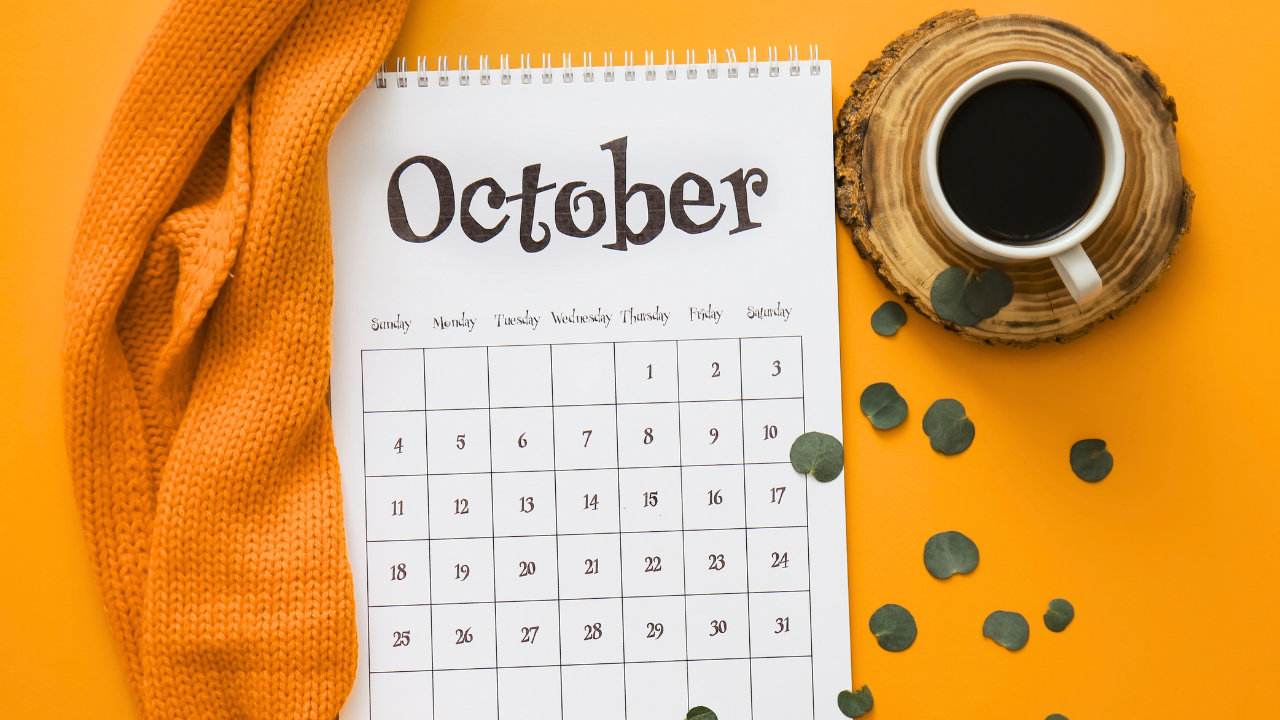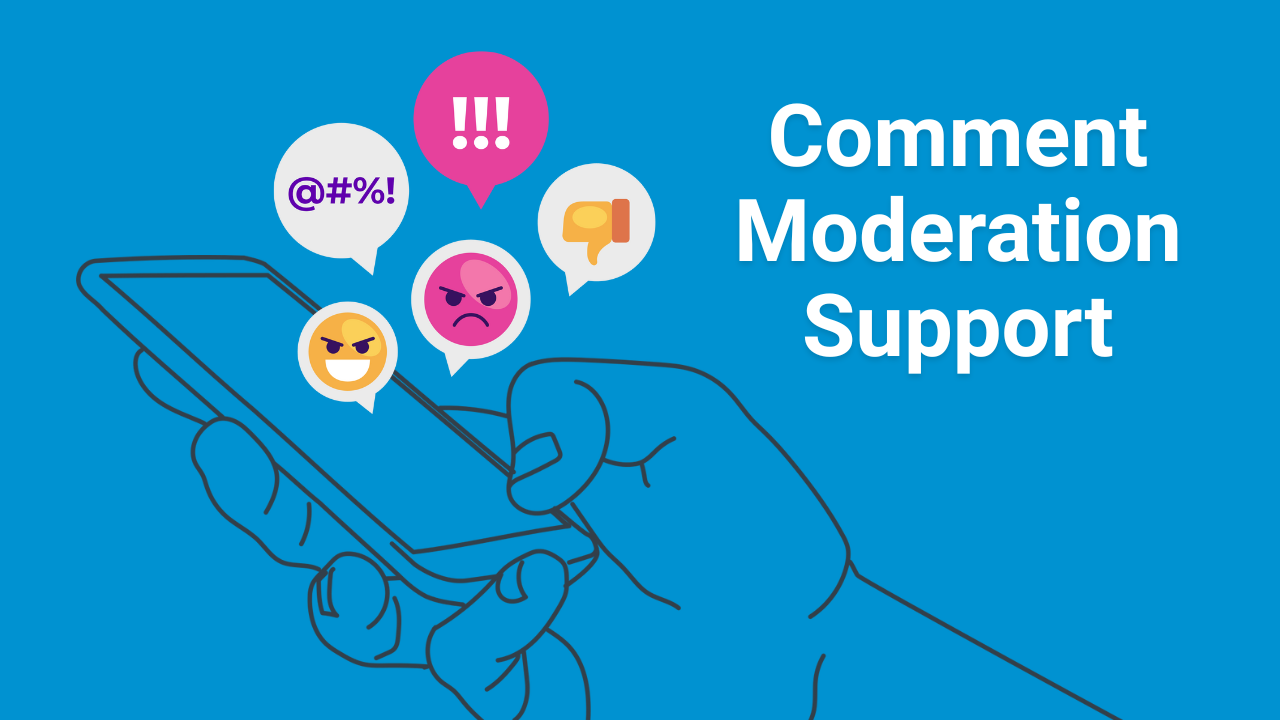
GSMChat Recap: Keeping up with the Comments! Strategy help for overworked #SocialGov
Aug 07, 2020Do you have comment overload? During this week’s Government Social Media Chat, we got together virtually to decompress and get some great advice on how to handle comments in, “Keeping up with the Comments! Strategy help for overworked #SocialGov.” Before we jumped in this week, we let everyone know about the Social for Safety Conference coming this September, virtually this year! Our Call for Speakers runs through Friday, Aug. 14.
Before we dive into #GSMChat, in case you can’t stick around – We’re seeking speakers for the virtual Social for Safety Conference #S4SCON. Propose a session by Friday, Aug. 14 and share your experiences with your peers: https://t.co/6tALHKem3q #GSMChat #smem #lesm
— Government Social Media (@GovernmentSM) August 6, 2020
Let’s jump into Q1! Comments can be a very difficult part of your socialgov job; what’s your current strategy?
Q1: What’s your current strategy on handling comment overload on posts? Hands-off, jump in on key comments, or respond to all? Why? #GSMChat #lesm pic.twitter.com/fUTZr5tlxT
— Government Social Media (@GovernmentSM) August 6, 2020
Some socialgov say they’ve been very hands-off, others have a goal of responding to nearly all comments. What many professionals agreed on is needed to “triage” the comments, search for common themes to post responses and work as best as you can to correct misinformation, while also caring for your own mental health.
A1: We have every intention of replying to every comment we receive. Give COVID, our engagement has been too high for that to always be possible.
— Katie Grant (@katielynngrant) August 6, 2020
Triage as you go. Answer questions. Thank the helpers. Feed the trolls only when necessary. Cheer when the plan works. #GSMChat pic.twitter.com/yrQOGoL3jY
A1a:
— Mary Jo Flynn (@MaryJoFly) August 6, 2020
This is super old, but I still use it https://t.co/ftwbECCn9W#gsmchat
A1: If you dare to take on replying to each comment you can, I beg of you
— Mary Jo Flynn (@MaryJoFly) August 6, 2020
DO
NOT
COPY
AND
PASTE
YOUR
MESSAGE
If you can't be original with each response, it doesn't deserve an original response. It deserves a bulk response. #gsmchat
A1: First, don't attempt to answer every single question (especially if you get hundreds of comments). What we have been doing lately is finding out common questions and then sharing a new post with answers to them. That helps a lot. #gsmchat https://t.co/pryYNO36FQ
— Mark Van Baale (@markvanbaale) August 6, 2020
A1: I will also add that you need to be protective of your own mental health when dealing with comment overload. It can be very draining to read comment after comment. Especially from those who tend to rant all of the time. #gsmchat
— Mark Van Baale (@markvanbaale) August 6, 2020
Would you argue it’s NOT OK to reply only to positive comments? Let’s explore in question 2.
Q2: Handling #SocialMedia comments & questions consistently can be difficult at times – would you argue it’s NOT OK to reply only to positive comments? #GSMChat pic.twitter.com/2DeUuJgEDN
— Government Social Media (@GovernmentSM) August 6, 2020
Here’s what some of the socialgov community had to say:
A2: Negative comments are your moment to showcase the ultimate professionalism of your agency. Don’t shy away from difficulties. You have a much larger audience watching what you do and how you handle it, whether or not they are chiming in. #gsmchat pic.twitter.com/6Opj5EUdlK
— Katie Nelson (@katienelson210) August 6, 2020
A2: I absolutely would not limit replies to positive comments, as so many negative replies contain wild misinformation—you can really use those as a teaching moment, even if it's not necessarily to teach the person who left the comment (their minds are usually made up)! #GSMchat
— 𝙋𝘢𝘶𝘭 𝙏𝘦𝘦𝘱𝘭𝘦 (@paulcteeple) August 6, 2020
A2: It depends on the negative comments.
— Katie Grant (@katielynngrant) August 6, 2020
Are they negative AND full of misinformation? Then definitely respond to at least get the correct facts out.
Negative but accurate? I tend to say it's worth leaving alone, even if replying to other positive comments. #GSMChat
Let’s dive into this tough topic: argumentative comments. What do you with these types of comments? Respond or let them go?
Q3: What are some deciding factors on choosing whether to either respond to argumentative comments or let them go? #GSMChat #SocialGov #smem #lesm pic.twitter.com/e3WLYvWpQ7
— Government Social Media (@GovernmentSM) August 6, 2020
When it comes to argumentative comments, it’s a very difficult decision to respond or not. However, hear your fellow peers out on these questions to consider and methods to take.
A3: Read between the lines
— Bronlea 🐈🐓🐐🐎🐕 (@bronleamishler) August 6, 2020
1. Is there a legitimate question you can answer?
2. Is there evidence of confusion you can correct?
3. Is there obvious misinformation/rumors you can address?
Argumentative is just tone. Look for the true issue and respond to THAT #GSMCHAT
Yes! This is one of the best ways to manage comments. Use your debate-style approach. Works to handle time & guide the responses. #gsmchat
— Marian Doucette (@iNeedArts) August 6, 2020
A3: I know people like to jump in right away & start typing, but you can PAUSE. Read it, walk away, come back to it. Your social community may have already stepped in to assist, if not, then craft your answer as if you were talking to more than that single individual. #GSMChat
— Emily Allen Lucht (@allen_emilym) August 6, 2020
Let’s work together! Being a social media team of one isn’t easy to begin with, and adding a swarm of comments certainly doesn’t help. How could you pull in others to best help you?
Q4: Sometimes #SocialMedia teams of 1 can’t do this alone. What are ideas for pulling in others to help monitor & respond to comments and questions, whether you have a #SocialGov team or not? #GSMChat pic.twitter.com/jzqexfVS05
— Government Social Media (@GovernmentSM) August 6, 2020
It’s not always feasible to add members to your team (especially with budget cuts happening), AND adding individuals who are trained to handle social. Here are some workarounds and ideas fellow peers have:
Q4: If you have a local emergency and need help, may I suggest reaching out to your local emergency management agency and if they are busy your state Emergency Management agency? I have helped many, many local folks with help on social media working from a state level #gsmchat
— Steven Friederich (@reportersteven) August 6, 2020
A4: In emergencies - Joint Information Center is huge. Regular? - I have a team of a part-timers who all have other jobs . We train, have monthly meetings, etc. So while I'm the main "part-time" person, lots of great work is done by the other members. #gsmchat
— Susan Trachsel (@Susan_Trachsel) August 6, 2020
A4: Sometimes we just have to help one another. #VOST is a concept of just that, agreeing to spend a little time helping a colleague when they need critical support. In return, they agree to be there for you when the time comes. #gsmchat pic.twitter.com/TuZmxvowGJ
— Mary Jo Flynn (@MaryJoFly) August 6, 2020
Last question of the day coming up…
Q5: A lot has changed since the #COVID19 pandemic. How could or should you update/revisit your comment policies to reflect 2020? #GSMChat #smem pic.twitter.com/f4vhnFsJQC
— Government Social Media (@GovernmentSM) August 6, 2020
Updating/revisiting your comment policies is so important to make it clear, make sure everyone’s on the same page and a great opportunity to get your legal teams involved.
A5: What a timely question! We have been working with Legal the last several weeks to update our commenting policy so it is more clear to others what or how we may remove comments if they violate our guidelines. #gsmchat
— Mark Van Baale (@markvanbaale) August 6, 2020
A5. All policies should be reviewed annually. You should also keep track of anomalies so that they can be addressed during the review and changes made. And you should be visiting this throughout the year during training and exercise activities. #gsmchat pic.twitter.com/Egtplx0igU
— Sarah Gamblin-Luig (@CommsDom) August 6, 2020
A5: I am setting up a meeting with our city attorney, to make sure I keep up with our state laws, and moderate appropriately. That's important to me, to keep a respectful space, but also respect the First Amendment. I want to update our policy accordingly. #gsmchat
— ✨Jessica 🏠🧼😷 VanderKolk✨ (@jlvanderkolk) August 6, 2020
We appreciate the socialgov community supporting each other, sharing tips & helpful resources! For a full recap of the Aug. 6, 2020, Government Social Media Chat, you can read through the whole chat on Wakelet.
-----
Government Social Media Chat is your chance to get advice and ideas from your government social media peers across the U.S. We e-meet on Twitter bi-weekly to unpack social media issues specific to the socialgov community, share thoughts through guided questions and destress together. Search “#GSMChat” on Twitter every other Thursday to join in.
Best communicate with the public you serve by becoming a part of the free Government Social Media network — only available to full/part-time employees of government or educational institutions. Get access to socialgov-specific resources, like the COVID-19 SocialGov Hub group, and other organized content. Virtually collaborate with each other, share advice, get input, tips & more by joining the Government Social Media network today.
Government Social Media® empowers government professionals to achieve mastery in social media through conferences, online training, and association membership. Best communicate with the public you serve and get connected with fellow socialgovs by registering for the 2026 Government Social Media Conference happening in New Orleans, LA and virtually from wherever you are! Join the free GSM Network for text-only chats on socialgov topics or access the Government Social Media Association (GSMA) for regional virtual meetups and educational webinars.









